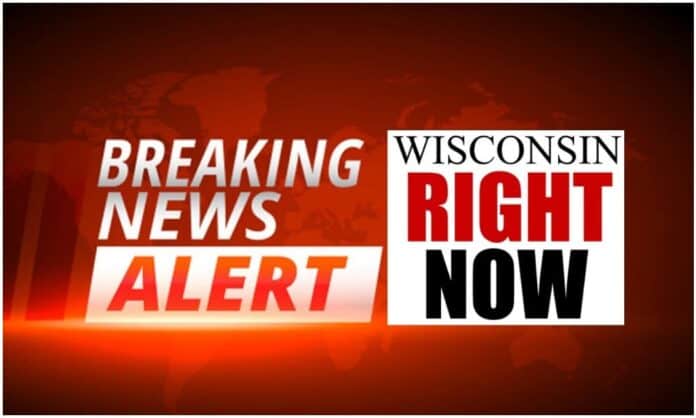(The Center Square) – The intention was for this random act of journalism to be my final contribution to the industry ahead of the holidays.
I’d plow straight through this column. Keep it tight. Make it short. Subject-predicate. State my case, make my case, and then close my case. Afterward, get on with the rest of my work.
But I wrote this in something of a rain-delay situation. I had to wait about an hour beyond my control to get rolling because the smoke alarms were going off and a sickeningly sweet cloud was hanging about 8 feet above the first floor of my home/workplace. It was difficult to concentrate on what felt like my first day at the Wonka factory.
Friday was Day One of work release from e-learning for my grade school-aged kids and everyone else in the house subjected to that nonsense.
My 8-year-old celebrated this momentous occasion by making toaster waffles. She executed that flawlessly. They were golden. True fact.
But she tried her Guy Fieri best to hot-rod it to Flavortown, concocting a syrup composed of agave juice (or nectar, or whatever it is) and pure cane sugar, mixed together in a handmade pottery mug sourced from the Smoky Mountains in Tennessee. Forensics haven’t come back with the report, but early indications are that this attempted syrup was cooked on high in the microwave probably three times longer than anything should ever be nuked.
The result was (is – and perhaps always will be) a black volcanic magma mass that emerged from this now-melted/molten pottery.
With no attempt at hyperbole, I am surrounded in so much sickening smoky sweetness that I suspect it will linger for days.
The house has been my office for about nine months now. I don’t get out much. We don’t have a daily crisis here, for which I am grateful. Work gets done. Days pass and projects are completed. Business is good and continues to grow.
Relative to others, all is pretty good.
But this can’t be the way that we do things in 2021. Let me recast that line: It’s not going to be the way that I do things in 2021.
Yes, there will be good days and bad days ahead. There will be the plan that is executed and the unforeseen that will be temporarily derailed.
Delayed maybe, but not canceled.
If we learned anything from 2020, it’s that we can and must carry on in the midst of the sickeningly sweet and the terribly bitter. We can’t allow the obstacles to win.
Resolutions saved for a new year are destined to fail. Now is always a good time to fix the things that we know need to be fixed. My microwave aside, I think there will be plenty of things that are revamped and revised in the year ahead that I am going to start working on right now.
Foremost of them is getting out, getting away from the fear that has prevailed and lingered like burnt agave, and living the way that I would like rather than the way that you and I have been conditioned to live over the past nine months.
Make your plan, and then work that plan.
The Center Square has amazing things to come in 2021. Can’t wait to share them with you.
Note to readers: The Sunday Read will return January 8, 2021.
* * * *
Elsewhere in America, away from the sugary smoke of my kitchen…
CALIFORNIA
With Gov. Gavin Newsom indicating that he intends to keep California in lockdown well into 2021, more counties have signed a resolution rejecting his executive orders, and a grassroots movement has gained momentum to gather enough votes needed to submit a petition to recall him as governor. The latest local government to sign the Healthy Communities Resolution is the Orange County Board of Supervisors, joining Northern California counties to grow a statewide movement to end the governor’s lockdown.
ARIZONA
The first resolution filed in the Arizona Legislature is aimed squarely at removing Gov. Doug Ducey’s COVID-19 restrictions. Senate Concurrent Resolution 1001 would immediately void the governor’s ongoing series of executive orders, including other orders that draw their authority from the emergency declaration originally enacted on March 11. The fact that it’s in resolution form is significant. Should it pass both chambers of the Legislature, Ducey would not have the ability to veto it as he would with legislation.
TEXAS
Oracle is the latest multi-million dollar company to announce its exodus from Silicon Valley and relocate to Texas. Oracle Corporation, a multinational computer technology company that has been headquartered in Redwood Shores in California, is now headquartered in Austin. The company already had a strong presence in Texas. Less than two weeks ago, Hewlett Packard Enterprise announced that it was relocating its global headquarters from California to Spring, Texas. “We believe these moves best position Oracle for growth and provide our personnel with more flexibility about where and how they work,” Oracle said in a statement. California’s high taxes and business-unfriendly environment have been cited as reasons for the outmigration.
WESTERN STATES
President-elect Joe Biden’s pledged restrictions on oil and gas development on federal lands would prove costly for eight western states that rely heavily on tax revenue, a recent study funded by the state of Wyoming found. A ban on oil and gas drilling on federal lands would mean a loss of 350,000 jobs and $670.5 billion in gross domestic product in Wyoming, New Mexico, Colorado, Utah, Montana, North Dakota, California, and Alaska by 2040, according to the study.
MAINE
Opponents of a 145-mile hydropower transmission corridor that would run through Maine’s North Woods have lost another round in their legal fight after a federal judge tossed out a bid by environmentalists to block the project. On Wednesday, U.S. District Judge Lance Walker rejected the lawsuit filed by Sierra Club Maine, the Natural Resources Council of Maine and other green groups seeking to delay construction of the project, which could get underway in January. Central Maine Power’s $1 billion New England Clean Energy Connect calls for providing up to 1,200 megawatts of Canadian hydropower to the New England region.
NEW YORK
New York Gov. Andrew Cuomo pulled no punches Wednesday in responding to reports that the COVID-19 relief package being hashed out by congressional leaders in Washington would not include funding for state and local governments. He also announced the cash-strapped state will advance $1.5 billion to help essential state agencies over the next couple months. Cuomo also admitted there will be a need for tax increases but told lawmakers that he wants any tax hike done at the same time as the budget, which would likely keep lawmakers from trying to pass last-minute increases before the end of the year. He also talked about possible new funding sources, including expanded sports betting and legalized marijuana.
Last Sunday, a former adviser to Cuomo publicly accused him of sexual harassment. Lindsey Boylan, who is a candidate for Manhattan borough president in the 2021 election, worked for Cuomo from 2015 to 2018 in an economic development role. Without offering specifics, she said on Twitter that Cuomo had taken advantage of his position supervising her during those years. “Yes, @NYGovCuomo sexually harassed me for years,” she wrote. “Many saw it, and watched. I could never anticipate what to expect: would I be grilled on my work (which was very good) or harassed about my looks. Or would it be both in the same conversation? This was the way for years.”
PENNSYLVANIA
The Keystone State saw about 30% of its businesses close for at least some period of time during the pandemic, second most in the nation, according to recent federal data. But the governmental relief for Pennsylvania’s businesses lagged far behind that number, ranking outside the top 20. To at least one lawmaker, that points to poor leadership by Democratic Gov. Tom Wolf. “The statistics clearly show the Wolf Administration forced too many businesses to close, kept those businesses closed for far too long, and did not do enough to help the business owners and employees who were deeply affected by the Administration’s unilateral orders,” said Sen. Camera Bartolotta, R-Monongahela. “We all recognize that certain precautions must be taken during a pandemic, but Governor Wolf’s mismanagement of the response to this crisis over the past several months is a big reason why many Pennsylvanians have zero faith in the decisions he is making now.”
WEST VIRGINIA
Gov. Jim Justice has outlined phase two of West Virginia’s COVID-19 vaccination plan, which will occur after the top priority groups have had the opportunity to receive vaccination. West Virginia began receiving the Pfizer vaccine early last week, which the state has begun to distribute to its highest priority groups in Phase 1-A: hospital workers, pharmacies and long-term care facility staff and residents. After Phase 1-A is complete, the state will move on to three other priority groups. In Phase 1-B, the vaccine will go to community infrastructure and emergency response, public health officials and first responders. In Phase 1-C, it will go to other health care workers. In Phase 1-D, it will go to teachers, education staff and workers in other sectors critical to the state, such as transportation.
ILLINOIS
While House Speaker Michael Madigan announced an “advisory group” to review Gov. J.B. Pritzker’s proposed cuts, public finance watchdogs said what’s been revealed so far won’t balance the budget. A day after Pritzker announced $711 million in budget cuts to shore up the state’s finances, Madigan and Pritzker separately attacked the Republican super-minority for a lack of a plan. Truth In Accounting Research Director Bill Bergman said there’s still more than a billion-dollar gap in the budget.
Some state lawmakers said they were left with more questions than answers after a nearly four-hour hearing focused on a COVID-19 outbreak at a state-run veteran’s home that killed at least 33 residents. Officials from the Illinois Department of Veterans’ Affairs were on hand to answer questions Wednesday. A spokesperson for the Illinois Department of Public Health said department officials sent consultant Dr. Avery Hart, but he couldn’t answer all the questions posed by committee members. State Rep. David Welter, R-Morris, told IDVA Director Linda Chapa LaVia it was unacceptable that IDPH didn’t send officials to answer questions. “They are leaving you, director, frankly to answer for their failure to show up today and the 12 days it took them to get on-site at the LaSalle home,” Welter said. “It’s a clear indication they are covering up their inaction by refusing to participate in legislative hearings and it’s shameful.”
INDIANA
Since 2015, gun-rights supporters in Indiana have been trying to pass a “constitutional carry” bill to allow everyone who can legally own a gun to carry it on them when they leave the house without having to have a license. But those bills have been stopped, unable to get a hearing or any serious consideration. A new House speaker is just stepping in – Rep. Todd Huston – and there are at least two constitutional carry bills that will be introduced in the coming weeks.
OHIO
A city employee in southwest Ohio says a union continues to collect money from his paycheck after deciding he did not want to be a part of the organization. Timothy Crane, a city of Hamilton employee, filed a federal lawsuit against both the city and the International Union of Operating Engineers Local 20, claiming compulsory fees taken from his paycheck violate his First Amendment rights.
MICHIGAN
Pandemic restrictions forced 32% of Michigan businesses to close at least temporarily, the most of all 50 states in the nation, federal data show. Only Puerto Rico, a U.S. territory where 50% of businesses closed, ranked higher.
The Michigan Senate on Thursday night approved a bill 22-16 along party lines that aims to limit the state health department’s epidemic order power. SB 1253, if signed into law, would amend the Public Health Code so Department of Health and Human Services (MDHHS) Director Robert Gordon’s epidemic orders would be valid for up to only 28 days unless both houses of the Legislature approves Gordon’ extension request.
MISSOURI
Two proposed 2021 bills would offer legal protections fordrivers who inadvertently hit “rioters” and “mobs” – but not “protesters” – with their vehicles during civil disturbances. House Bill 56, The Fleeing Motorist Protection Act, sponsored by Rep. Adam Schnelting, R-St. Charles, was pre-filed on Dec. 1, the day pre-filing began for the 2021 legislative session, which begins Jan. 6. Under HB 56, “If a person attempts to flee in a motor vehicle from an unlawful or riotous assemblage, such person shall not be criminally or civilly liable for any deaths or injuries to any individual participating in the unlawful or riotous assemblage that may result if the person reasonably believes he or she or any occupant of the motor vehicle is in danger.”
MINNESOTA
On Wednesday night, Gov. Tim Walz introduced sweeping four-week restrictions to combat COVID-19, sparking outcry from restaurant groups and Republicans warning of the inevitable economic fallout. The restrictions started at 11:59 p.m. Friday and stretch until Dec. 18. Among the restrictions are prohibitions on in-person social gatherings with anyone of another household; limiting restaurants and bars to offer take-out and delivery only; and shuttering gyms, fitness studios and event spaces. Hospitality Minnesota President and CEO Liz Rammer said the restrictions “will push many small restaurants, food service and other hospitality businesses over the cliff.”
WISCONSIN
A new state audit lays the blame for Wisconsin’s months-long unemployment backlog on the state’s Department of Workforce Development. Auditors found that workers at DWD didn’t follow up with people who’d filed claims, or didn’t process the information they had, delaying payments for up to 13 weeks or even longer.
FLORIDA
The U.S. Public Interest Research Group ranked the Florida Legislature’s tentative multibillion dollar plan to build 330 miles of toll roads across the state as a top 2020 “boondoggle” in its annual Highway Boondoggles report. Construction would begin in 2022 and end in 2030. It would be funded through license plate tag revenue; $1.1 billion over a decade to finance a bond. The Legislature authorized $90 million for the project in this year’s budget, $135 million in fiscal year 2022 and $140 million annually through fiscal year 2030.
LOUISIANA
Personal income in Louisiana fell more than the rest of the nation’s during the third quarter of the year as federal pandemic relief dwindled, according to a federal report released Thursday. State personal income fell 13.8 percent at an annual rate, compared to an average nationwide decline of 10 percent, according to the federal Bureau of Economic Analysis. Annualized growth rates show the rate of change that would have occurred had the pattern observed during a given three-month period been repeated over a full year. Net earnings actually went up during the third quarter, the BEA report shows. But that increase was more than offset by a larger decrease in transfer receipts, which include government release payments.
GEORGIA
Secretary of State Brad Raffensperger announced Georgia will do a signature match audit of absentee ballots in Cobb County to help reinforce election integrity. The audit, being conducted with the help of the Georgia Bureau of Investigation, is expected to take two weeks to complete and will not change the outcome of the Nov. 3 presidential election. Allegations that election workers in Cobb County had not adequately conducted signature matching on absentee ballot applications before the June primary helped trigger the audit.
TENNESSEE
Lawmakers on a financial oversight committee questioned Tennessee Health Commissioner Lisa Piercey and other officials Thursday about a $26.5 million no-bid contract for COVID-19 testing supplies that turned out to be unusable. The contract, signed by state officials May 1, was with Utah-based health care startup Nomi Health. The state withdrew from the contract June 12 after the coronavirus test kits did not measure up to state standards. Tennessee remained responsible for $5.9 million to pay for some personal protective equipment, technology and a management fee.
VIRGINIA
Gov. Ralph Northam has proposed a budget amendment to fund four additional judges for the Virginia Court of Appeals, spurring state Republicans to accuse Northam of trying to pack the courts with soft-on-crime judges. The governor proposed several budget amendments he said would promote his progressive agenda. “Governor Northam’s proposal to pack the Court of Appeals politicizes Virginia’s judiciary, emulating the Democrats’ hyper-partisan scheme to expand the United States Supreme Court,” Senate Republican Caucus Chairman Ryan McDougle said. “I will adamantly oppose this effort by the Governor to appease and appeal to his party’s extreme left-wing.”
By Chris Krug | The Center Square
Go to Source
Reposted with permission







![Protecting Portland: No Good Deed Goes Unpunished [REVIEW]](https://www.wisconsinrightnow.com/wp-content/uploads/2025/07/portland-356x220.jpg)























